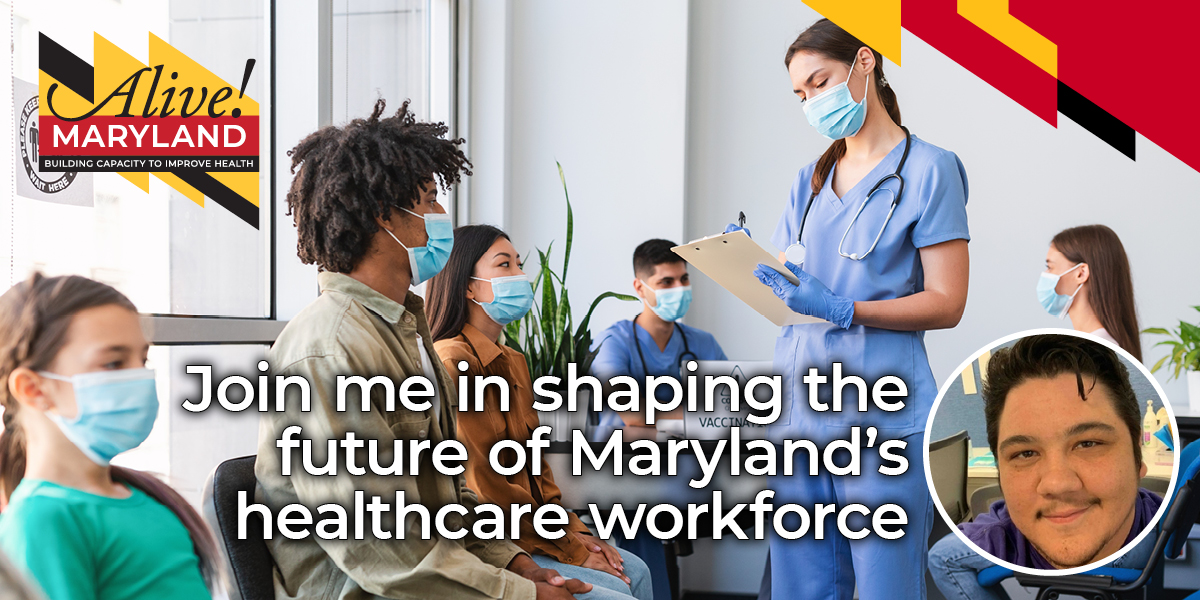Building a healthier Maryland starts with providers that are dedicated to their work and invested in the livelihood of their patients.

One provider who embodies this mission is M. Tica Torres (he/they), a Care Navigator at Planned Parenthood Maryland, a Transgender Response Team Member for the State of Maryland, and a member of Alive! Maryland’s Inter-professional Advisory Board.
We spoke with Torres about his endeavors as a Care Navigator, the motivations behind their work, and their advice on how other providers can advance impact in their own fields.
Read the Q&A below to see how this phenomenal provider brings the state of Maryland Alive!
Can you tell us about your work?
“My work as a care coordinator is to connect people to resources. So it can mean connecting them to a specialist; it can mean connecting them to a community organization, to social services, and sometimes even help with managing their actual insurance coverage, like medication and approvals. The populations I work with are generally the most vulnerable people. So trans and gender diverse people, or undocumented folks. I also work to build a more affirming space. I help give pointers about how to make the clinical spaces more friendly and culturally affirming to folks.”
What inspired you to engage with this work?
“I’m a trans Latino son of an immigrant family, and I understand the struggles with healthcare disparities, and I just kind of want to help people be able to access care because healthcare is part of that overall health, that overall wellbeing.”
What is your intended impact?
“Building trust with healthcare providers. A lot of people — trans and gender diverse people, undocumented people, even under-insured folks — feel kind of left out of the conversation and almost like they can’t trust institutions.
There’s a lot of colonization in the policies that we have. So kind of helping to build that trust with healthcare so they can see that your doctor’s offices, your nurses, the staff there — they can be friendly, they can help, and they care about you. I think that sometimes that gets lost in translation.”
What does the future of your work look like?
“It’s really promising. I see that a lot of health systems are bringing navigators on. So the message is clear that this is the way to be successful as far as getting your patients to stay compliant and take their meds. I’m hopeful that people are going to start buying into the care coordination and focusing on how we can help patients outside of the healthcare system.
It’s not just enough to give them healthcare; they might need a ride here or [other assistance] there. So how do we help with those other things? Housing, food insecurity — things that we know can seep into health.”
What advice would you give to other providers aiming to expand or advance their work?
“Provide affirming care. Capacity is limited sometimes, but it’s important to put investment into care navigation. So it’s not enough to just see a patient and provide a prescription if they’re not going to be able to take that prescription anywhere because they can’t afford the medicine. Having that navigation piece is really important to completing the loop and getting people to stay on meds and get healthy. Everybody should just remember that we’re all a community. Maryland in general is a community — it’s a large community, but it’s a community and Marylanders are unique in that the laws here are really friendly for folks and really supportive. So I’m proud of Maryland. I know we’re doing a good job and I think we can do this. I’m very hopeful.”
Do you know a Maryland-based provider who we should highlight? Email Alive! Maryland at info@alivemaryland.org with recommendations.

